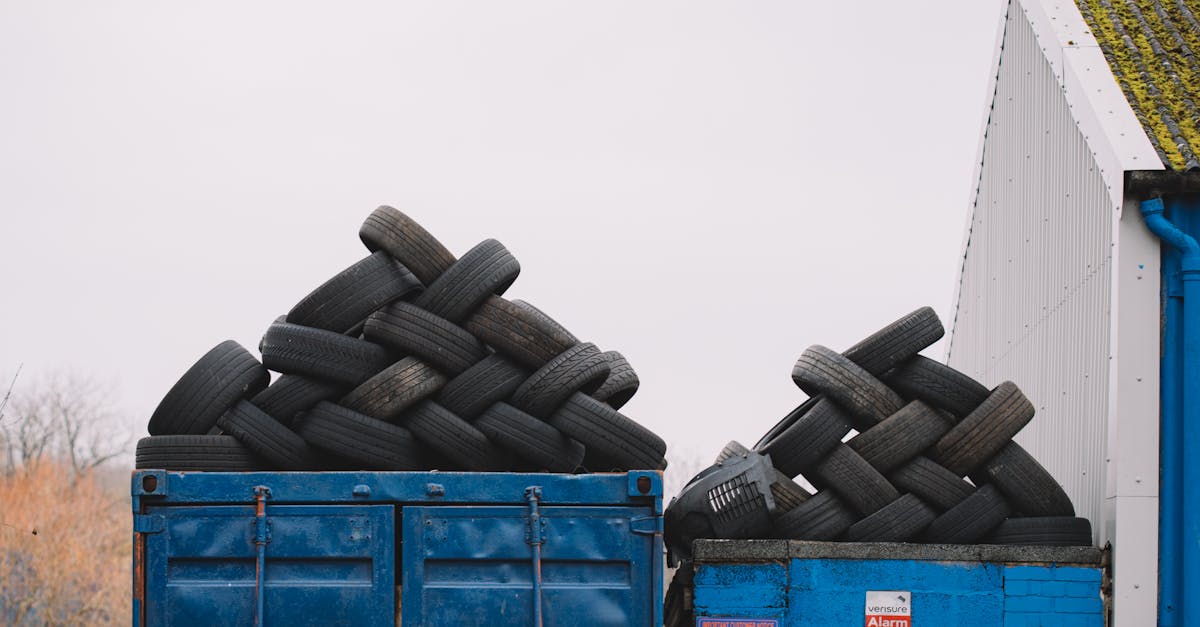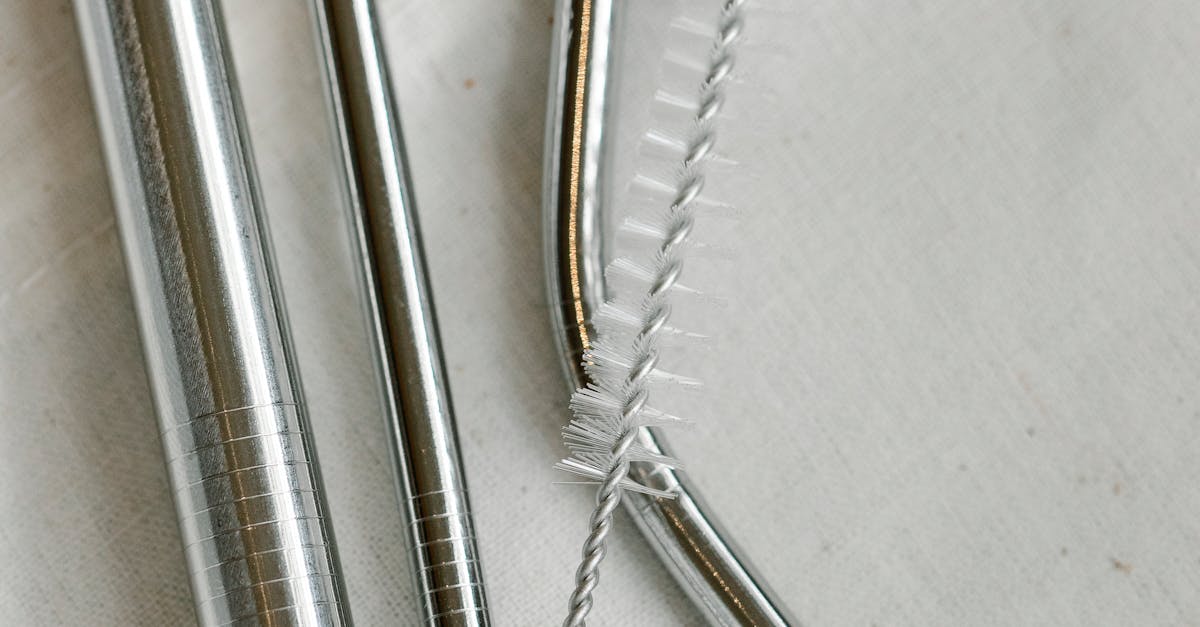
At junkremovalspringhill.net, we offer a specialized service in Appliance Recycling. Our team is dedicated to responsibly disposing of old or unwanted appliances in an environmentally friendly manner. By recycling appliances such as refrigerators, stoves, dishwashers, and washing machines, we help reduce the amount of electronic waste that ends up in landfills. Our customers can trust us to handle the removal and recycling of their appliances in a safe and efficient way, making it a hassle-free experience for them. Contact us today to schedule an appointment for Appliance Recycling services with junkremovalspringhill.net.
Reusing Recyclable Materials
When it comes to appliance recycling, reusing recyclable materials is a key aspect that not only benefits the environment but also helps companies repurpose valuable parts from appliances. Appliances such as refrigerators, freezers, washers, dryers, and dishwashers contain various materials like steel, copper, plastics, and foam insulation that can be salvaged for future use. Companies involved in appliance recycling can dismantle these appliances, extract the recyclable materials, and ensure they are reused in the production of new appliances or other products.
Repurposing valuable parts from appliances is a sustainable practice that reduces waste going into landfills and conserves natural resources. By salvaging components like compressors, copper wiring, and electronic devices, companies can contribute to a circular economy where materials are reused and recycled rather than discarded after a single use. This process not only benefits the environment by minimizing the environmental impact of appliance disposal but also presents opportunities for retailers to offer rebates or cash incentives for responsible appliance disposal, encouraging consumers to participate in appliance recycling programs.
How Companies Can Repurpose Valuable Parts from Appliances
Companies in the appliance recycling industry have been exploring innovative ways to repurpose valuable parts from old appliances. Salvaging components such as circuit boards, copper wiring, and motors can yield significant benefits both environmentally and economically. By disassembling appliances with precision, companies can extract reusable materials that can be refurbished and incorporated into new products. This process not only reduces the strain on natural resources but also helps in diverting a substantial amount of waste away from landfills.
Reusing parts from appliances like air conditioners, refrigerators, and water heaters also contributes to the promotion of sustainability. Components like compressors and coils can be refurbished for use in energy-efficient appliances. Furthermore, companies can collaborate with local charities and recycling programs to ensure that valuable parts are salvaged effectively. This approach not only helps in minimizing the environmental impact of discarded appliances but also creates opportunities for companies to develop a circular economy model that prioritizes resource conservation and waste reduction.
Impact of Improper Appliance Disposal
Improper disposal of appliances can have significant environmental consequences. When appliances are not recycled or processed correctly, they often end up in landfills. This leads to a buildup of electronic waste, which can release toxic chemicals and substances such as lead, mercury, and chlorofluorocarbons into the environment. These toxins can seep into the soil and groundwater, posing serious health risks to both humans and wildlife in the surrounding areas. Additionally, the sheer quantity of appliances being disposed of improperly exacerbates the problem, contributing to pollution and environmental degradation.
Moreover, the disposal of appliances in landfills also results in a waste of valuable resources. Many appliances contain materials such as iron, steel, copper, and aluminum that can be recycled and reused in new products. By not properly recycling these materials, valuable resources are wasted, and the demand for mining and extraction of raw materials increases. This inefficient use of resources not only harms the environment but also exacerbates issues related to energy consumption and extraction processes. Proper recycling and disposal of appliances are crucial to minimize the negative impact on the environment and conserve valuable resources for the future.
Consequences of Sending Appliances to Landfills
Appliances are excessively disposed of in landfills without being properly recycled or repurposed, leading to concerning consequences for the environment and human health. When appliances containing hazardous materials such as chlorofluorocarbons (CFCs) and hydrochlorofluorocarbons (HCFCs) are carelessly discarded, these chemicals can leak into the ground, contaminating soil and water sources. Additionally, the electronic components within appliances, like cathode ray tubes from computer monitors and refrigerants from refrigerators, can pose serious threats if not handled appropriately, contributing to the growing issue of electronic waste pollution.
Improper disposal of appliances not only causes environmental harm but also results in a wasted opportunity to retrieve valuable resources that can be recycled and reused. By sending appliances to landfills instead of recycling centers, masses of metal, plastic, and other materials that could be salvaged and repurposed are lost. This not only increases the volume of solid waste in landfills but also perpetuates the need to extract more raw materials, leading to further energy consumption and environmental degradation.
Community Engagement in Appliance Recycling
Community engagement plays a crucial role in promoting appliance recycling efforts within communities. It involves raising awareness about the importance of responsibly disposing of old appliances to prevent them from ending up in landfills. By engaging with local residents through educational programs and outreach initiatives, communities can encourage individuals to recycle their appliances through proper channels. The involvement of community members not only helps reduce the environmental impact of improper appliance disposal but also promotes a culture of sustainability and waste reduction.
Moreover, community engagement in appliance recycling can lead to the development of collaborative partnerships with local charities for waste removal. These partnerships provide opportunities for charities to collect old appliances from households, diverting them from landfills and contributing to the circular economy. By working together, communities and charities can ensure that recyclable materials such as copper wires, motors, and circuit boards are repurposed and recycled efficiently, reducing the overall environmental footprint of electronic waste. Such collaborative efforts can have a significant impact on promoting sustainable practices and conserving valuable resources for future generations.
Collaboration with Local Charities for Waste Removal
Collaborating with local charities for waste removal is a valuable initiative that not only benefits the environment but also contributes to the betterment of the community. Through partnerships with charitable organizations, businesses engaged in appliance recycling can efficiently manage the disposal of old or broken appliances in an eco-friendly manner. Charities often have established networks and resources that enable them to handle the collection and transportation of appliances, taking the burden off the businesses and ensuring that the appliances are properly processed instead of ending up in landfills.
Moreover, working with local charities for waste removal creates opportunities for businesses to give back to society and strengthen their corporate social responsibility efforts. By supporting these charitable activities, companies in the junk dealer industry demonstrate their commitment to environmental sustainability and community welfare. This collaboration not only aids in the proper disposal of appliances but also fosters positive relationships with the local community, enhancing their reputation and credibility as responsible corporate citizens.
FAQS
Why is appliance recycling important?
Appliance recycling is important because it helps in reducing landfill waste, conserves natural resources, and decreases energy consumption required for manufacturing new appliances.
How can companies repurpose valuable parts from old appliances?
Companies can repurpose valuable parts from old appliances by salvaging components like motors, wiring, and metal, which can be reused in manufacturing new products or sold as spare parts.
What are the consequences of sending appliances to landfills?
Sending appliances to landfills can lead to environmental pollution due to the release of harmful chemicals, contribute to greenhouse gas emissions, and take up valuable space in landfills.
How can communities get involved in appliance recycling?
Communities can get involved in appliance recycling by organizing collection drives, promoting electronic waste recycling programs, and educating residents about the benefits of proper appliance disposal.
How can collaboration with local charities help in waste removal?
Collaboration with local charities can help in waste removal by providing opportunities for donation of usable appliances, which can be refurbished and given to those in need, reducing the amount of appliances ending up in landfills.




